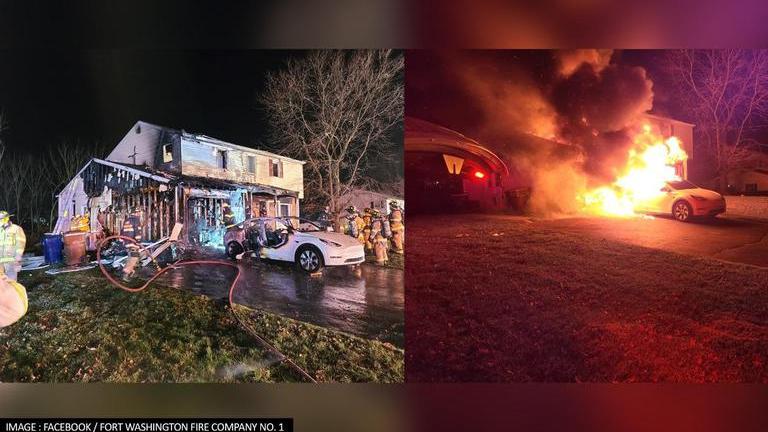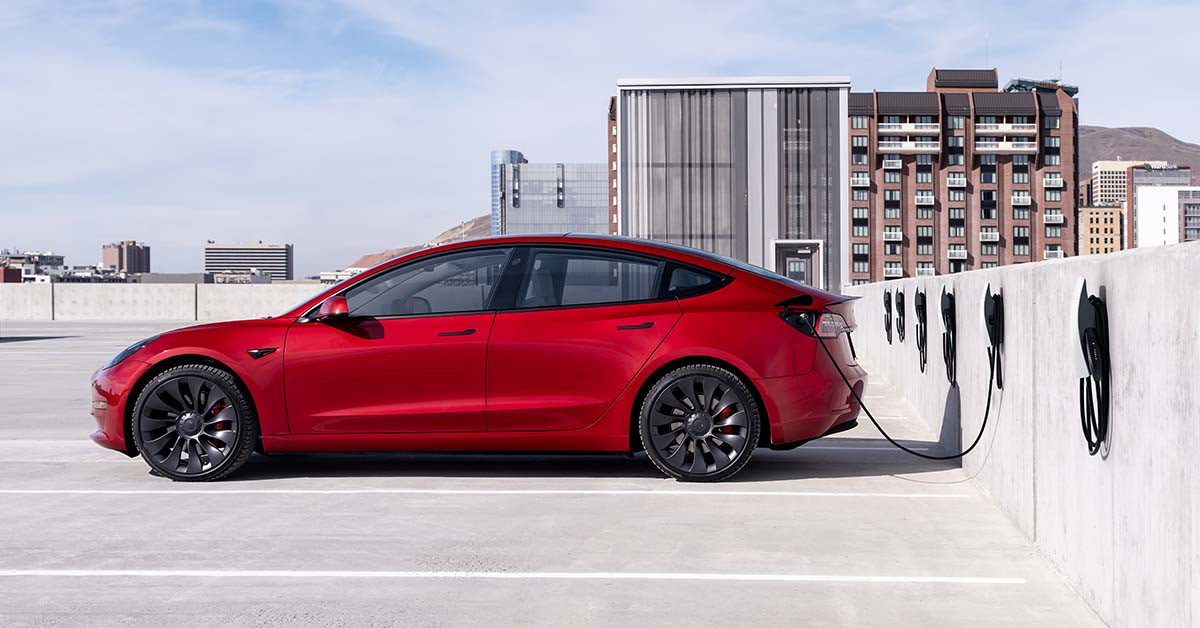Hello Everyone, I live in a condo building in the NOT EV friendly state of South Carolina, USA. Presently I have an agreement with our HOA Board which allows me to "trickle charge" off an existing 120V regular wall outlet. That works fine for much of my charging needs. Charging options in this area of the state are minimal. I pay the HOA a small extra fee above my HOA fee so there is zero cost to the other homeowners. There is an annual meeting of the association coming up soon. I am quite certain there will be one or two homeowners complaining or raising concerns about my charging. I want to go in to this meeting locked and loaded with "officially generated, government agency, etc" studies, data, facts on safety and the low cost of charging my model 3. Also if there is a "right to charge law in South Carolina or a federal law I can refer to that would be awesome. I would really like to make these ignorant FUDsters look like idiots and keep my charging arrangement. Thank you all in advance for your help. Stay safe out there!! B.
Welcome to Tesla Motors Club
Discuss Tesla's Model S, Model 3, Model X, Model Y, Cybertruck, Roadster and More.
Register
Install the app
How to install the app on iOS
You can install our site as a web app on your iOS device by utilizing the Add to Home Screen feature in Safari. Please see this thread for more details on this.
Note: This feature may not be available in some browsers.
-
Want to remove ads? Register an account and login to see fewer ads, and become a Supporting Member to remove almost all ads.
You are using an out of date browser. It may not display this or other websites correctly.
You should upgrade or use an alternative browser.
You should upgrade or use an alternative browser.
CONDO HOA MEETING COMING UP NEED "OFFICIAL DATA" TO DEFEND MY CHARGING
- Thread starter beenmb
- Start date
I can't provide you any of those official documents, but you could provide them some simple math.
If you were to charge the car constantly from a standard wall outlet:
24 hours in a day for 30 days in a month is 720 hours.
15 amp outlet at 120 volts is 1800 watts and at 80% load which is what the car draws comes to 1440 watts, or 1.4kw.
720 hours of 1.4kw is 1008 kwh.
South Carolina appears to have an average of about $0.14/kwh, so that'd be $141.12 if your car was charging constantly for a month. Which obviously you don't do because you also have to drive it in order to drain the battery down in order to charge it more. I don't know what extra you're paying them, but seems like $50/month would be too much.
I did find a document about highway vehicular fires.
Somewhere in there it talks about cars catching on fire for every 19 million miles driven in an internal combustion, and 170 million miles driven for Teslas. So gas cars are spontaneously bursting into flames 9 times as frequently. Also, don't drive your Tesla more than 170 million miles. It'll burst into flames.
If you were to charge the car constantly from a standard wall outlet:
24 hours in a day for 30 days in a month is 720 hours.
15 amp outlet at 120 volts is 1800 watts and at 80% load which is what the car draws comes to 1440 watts, or 1.4kw.
720 hours of 1.4kw is 1008 kwh.
South Carolina appears to have an average of about $0.14/kwh, so that'd be $141.12 if your car was charging constantly for a month. Which obviously you don't do because you also have to drive it in order to drain the battery down in order to charge it more. I don't know what extra you're paying them, but seems like $50/month would be too much.
I did find a document about highway vehicular fires.
Somewhere in there it talks about cars catching on fire for every 19 million miles driven in an internal combustion, and 170 million miles driven for Teslas. So gas cars are spontaneously bursting into flames 9 times as frequently. Also, don't drive your Tesla more than 170 million miles. It'll burst into flames.
Thank you this should be very helpful. I'm quite sure no one opposing my charging will have any solid data or facts just FUD reports.I can't provide you any of those official documents, but you could provide them some simple math.
If you were to charge the car constantly from a standard wall outlet:
24 hours in a day for 30 days in a month is 720 hours.
15 amp outlet at 120 volts is 1800 watts and at 80% load which is what the car draws comes to 1440 watts, or 1.4kw.
720 hours of 1.4kw is 1008 kwh.
South Carolina appears to have an average of about $0.14/kwh, so that'd be $141.12 if your car was charging constantly for a month. Which obviously you don't do because you also have to drive it in order to drain the battery down in order to charge it more. I don't know what extra you're paying them, but seems like $50/month would be too much.
I did find a document about highway vehicular fires.
Somewhere in there it talks about cars catching on fire for every 19 million miles driven in an internal combustion, and 170 million miles driven for Teslas. So gas cars are spontaneously bursting into flames 9 times as frequently. Also, don't drive your Tesla more than 170 million miles. It'll burst into flames.
The information they're going to bring, if they actually do care, will be these two incidences.

 www.businessinsider.com
www.businessinsider.com

 www.republicworld.com
www.republicworld.com
There are also lots of reports of phones catching on fire while charging. I suspect all these people use phones.
What is your parking area like? Is it an open parking lot or garage? Is it shared space with other cars? Attached to buildings where people live?
I'm having trouble finding anyone who's done the math, but they sold nearly a million cars last year so I suspect there are a couple million Teslas in the United States and there are two reports of charging fires at home. You are 3x as likely to die of covid than to have a Tesla charging fire. And I bet these same people think covid is a hoax.
A California couple's Tesla caught fire while charging overnight, ignited another Tesla next to it, and caused a massive house fire. They haven't been home in 8 months.
"The firemen said it was so hot that they couldn't walk up the driveway," Yogi Vindum told The Washington Post.

Tesla Model S in US catches fire while charging overnight in a garage- Republic World
Nearly two days after a Tesla Model S caught fire while charging in their garage overnight, another fire incident was reported in Pennsylvania, US on Tuesday night. According to a report by Fox Business, the fire was contained in less than a half-hour but. Though none of the family members was...
 www.republicworld.com
www.republicworld.com
There are also lots of reports of phones catching on fire while charging. I suspect all these people use phones.
What is your parking area like? Is it an open parking lot or garage? Is it shared space with other cars? Attached to buildings where people live?
I'm having trouble finding anyone who's done the math, but they sold nearly a million cars last year so I suspect there are a couple million Teslas in the United States and there are two reports of charging fires at home. You are 3x as likely to die of covid than to have a Tesla charging fire. And I bet these same people think covid is a hoax.
ItsNotAboutTheMoney
Well-Known Member
Use fueleconomy.gov to get your rated efficiency in kWh/mile.
I like the simplicity of the mobile site, Fuel Economy Mobile.
That's _wall to wheel_ so takes into account some charging losses.
Then add more because:
(1) Tesla
(2) Charging on 120V is particularly inefficient.
Then show your miles driven
kWh used = Miles driven / kWh_per_mile
You should have information about your Supercharger sessions and how much energy you got. You can deduct any of those.
Then multiply by price of electricity to see how much you should be paying _minimum_ and be prepared to pay a bit more for the use of the resource itself. Consider the socket to be a shared resource.
Make people aware that you can schedule charging if that helps keep any demand charges down.
Be prepared to look for any additional insurance in case of concern about damage from fires People have remarked that a rider for it usually doesn't cost much.
You might want to look for data on EV fires v ICEV fires as well.
Be collaborative. Be supportive of there being _more_ charging. Be cool.
I like the simplicity of the mobile site, Fuel Economy Mobile.
That's _wall to wheel_ so takes into account some charging losses.
Then add more because:
(1) Tesla
(2) Charging on 120V is particularly inefficient.
Then show your miles driven
kWh used = Miles driven / kWh_per_mile
You should have information about your Supercharger sessions and how much energy you got. You can deduct any of those.
Then multiply by price of electricity to see how much you should be paying _minimum_ and be prepared to pay a bit more for the use of the resource itself. Consider the socket to be a shared resource.
Make people aware that you can schedule charging if that helps keep any demand charges down.
Be prepared to look for any additional insurance in case of concern about damage from fires People have remarked that a rider for it usually doesn't cost much.
You might want to look for data on EV fires v ICEV fires as well.
Be collaborative. Be supportive of there being _more_ charging. Be cool.
Yes thank you. I am writing down all the data you guys are giving me so I'll be prepared to counter any point.The information they're going to bring, if they actually do care, will be these two incidences.

A California couple's Tesla caught fire while charging overnight, ignited another Tesla next to it, and caused a massive house fire. They haven't been home in 8 months.
"The firemen said it was so hot that they couldn't walk up the driveway," Yogi Vindum told The Washington Post.www.businessinsider.com

Tesla Model S in US catches fire while charging overnight in a garage- Republic World
Nearly two days after a Tesla Model S caught fire while charging in their garage overnight, another fire incident was reported in Pennsylvania, US on Tuesday night. According to a report by Fox Business, the fire was contained in less than a half-hour but. Though none of the family members was...www.republicworld.com
There are also lots of reports of phones catching on fire while charging. I suspect all these people use phones.
What is your parking area like? Is it an open parking lot or garage? Is it shared space with other cars? Attached to buildings where people live?
I'm having trouble finding anyone who's done the math, but they sold nearly a million cars last year so I suspect there are a couple million Teslas in the United States and there are two reports of charging fires at home. You are 3x as likely to die of covid than to have a Tesla charging fire. And I bet these same people think covid is a hoax.
Hi Tom, We have parking decks under a 12 story high rise condominium building. Two parking places come with our unit. No assigning of parking spaces in the HOA bylaws.Do you own your own garage?
Good news. We had the HOA meeting today. The subject of my trickle charging was not brought up. There were plenty of bigger issues to be dealt with. If it had come up the "charging stats" now available on the Tesla app would have been all I needed. It shows I was charging "at home" less than I estimated. The HOA is coming out ahead.
CrazyRabbit
Active Member
So with the new tax law, aren’t chargers subsidized? Writing is on the wall, electric cars will become the norm. so why wouldn’t it be acceptable for the HOA to charge you to install a lvl 2 charger along with a meter so they can bill you.
For those of you in condos and other multi-unit locations, have your HOAs or property managers look into Tesla Commercial Charging. They're scalable, share available power, are incredibly affordable compared to other providers like ChargePoint, and bill the user for electricity either through the car (Tesla) or the Tesla app (non-Tesla).

 www.tesla.com
www.tesla.com
Note that this type of setup would be centrally metered instead of individual charging stations feeding back to individual power meters. If existing common power is inadequate, a charging system could be installed in an exterior parking lot with a new power drop from the utility, and scaled up as needed.

Commercial Charging | Tesla
Tesla Wall Connectors instantly upgrade any commercial property by providing convenient charging to tenants and guests.
Note that this type of setup would be centrally metered instead of individual charging stations feeding back to individual power meters. If existing common power is inadequate, a charging system could be installed in an exterior parking lot with a new power drop from the utility, and scaled up as needed.
ItsNotAboutTheMoney
Well-Known Member
Likely in some way. Either you would need a larger service, or chargers that are set up to use spare capacity.What happens when everyone in the Condo wants a charger to plug their own car into? Would the Condo electrical system have to be upgraded?
If everyone wants a charger, that's actually a better place to be in than it can be. If it's only a small proportion at a time, it'll lead to a piecemeal approach that would ultimately be more expensive per unit, and could end up being limited to only a fraction of households. Better if you can do it all at once and split the costs.
I remember somebody from Canada posted about their luxury condo's parking garage having some spare capacity. They were ready to front the substantial cost for setting up for 8 units, thinking they'd get their money back over time as others paid for a slot. In reality as soon as it was announced, the other slots were taken up immediately.
So there is potential for any whole-building upgrade to have a build-it-and-he-will-come effect, but it's a risk that the developer/management may be reluctant to take.
Last edited:
brkaus
Well-Known Member
Are there any of these on real life? I still don’t see any large references to them existing. I had emailed about adding them to our office and heard absolutely nothing in return.For those of you in condos and other multi-unit locations, have your HOAs or property managers look into Tesla Commercial Charging. They're scalable, share available power, are incredibly affordable compared to other providers like ChargePoint, and bill the user for electricity either through the car (Tesla) or the Tesla app (non-Tesla).

Commercial Charging | Tesla
Tesla Wall Connectors instantly upgrade any commercial property by providing convenient charging to tenants and guests.www.tesla.com
Note that this type of setup would be centrally metered instead of individual charging stations feeding back to individual power meters. If existing common power is inadequate, a charging system could be installed in an exterior parking lot with a new power drop from the utility, and scaled up as needed.
ItsNotAboutTheMoney
Well-Known Member
I don't know if it's in full swing. There is language on Tesla's page that uses "soon".Are there any of these on real life? I still don’t see any large references to them existing. I had emailed about adding them to our office and heard absolutely nothing in return.
But there is definitely some deployment. Somebody posted about using a visitor charger they'd used before and being surprised when they were billed for it for the first time.
But payment for charging could be a tricky regulatory issue in some places.
Last edited:
I will never understand why these apartment complexes are so darn resistant to it. Yes, there's an up front cost. Amortize it. Set prices. Make money. Prepare. Be THE apartment complex with dedicated EV charging as an amenity. There's only one apartment complex in my city with dedicated EV charging, and it's in an absurd afterthought location that literally blocks the flow of traffic if someone were to ever use it. I charge in my apt garage on a 5/15. Before Ieave the city every weekend, I have to supercharge to top off. They're giving that money away.So with the new tax law, aren’t chargers subsidized? Writing is on the wall, electric cars will become the norm. so why wouldn’t it be acceptable for the HOA to charge you to install a lvl 2 charger along with a meter so they can bill you.
Similar threads
- Replies
- 16
- Views
- 710
- Replies
- 59
- Views
- 7K
- Replies
- 15
- Views
- 4K
- Replies
- 9
- Views
- 2K


